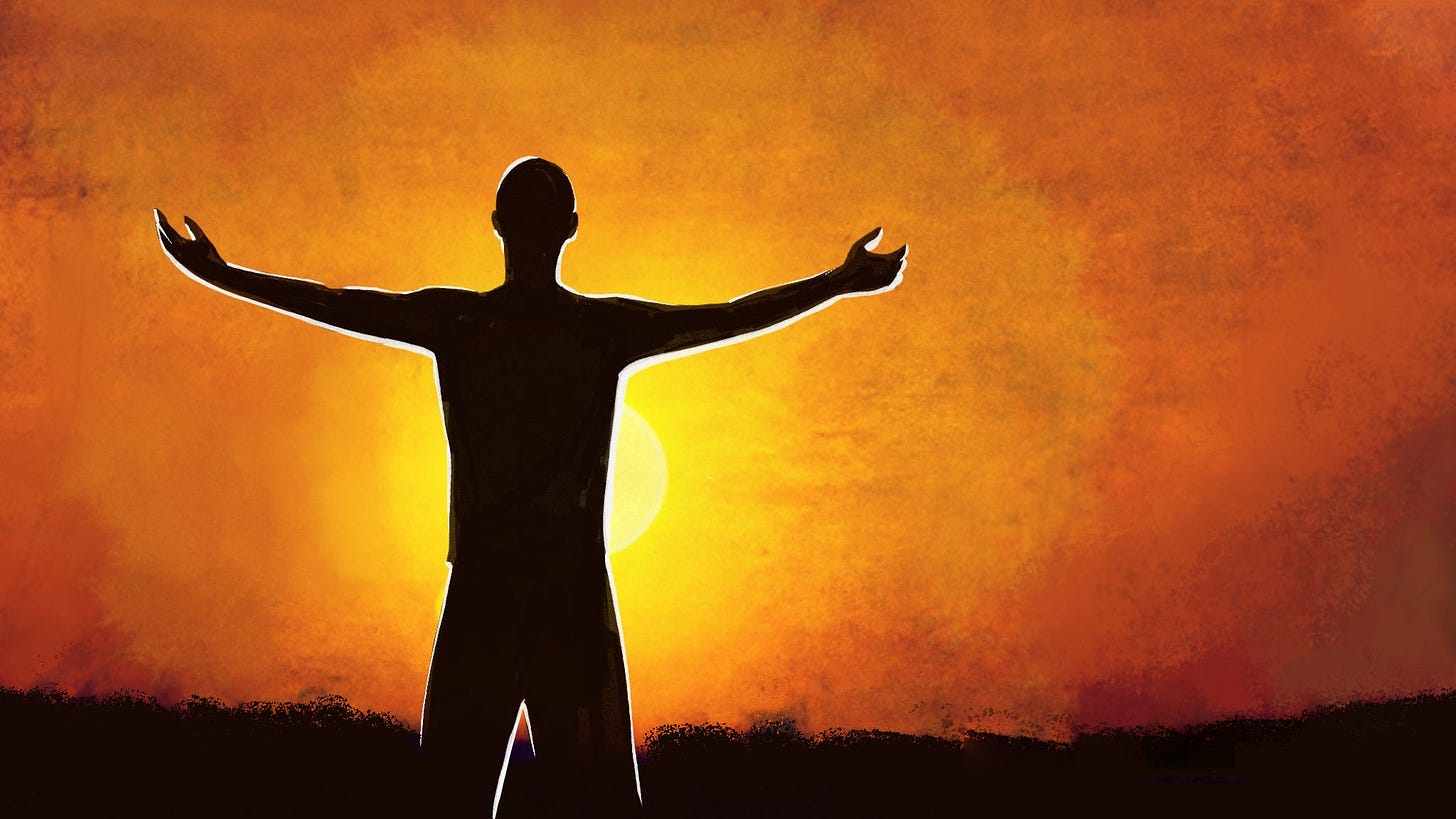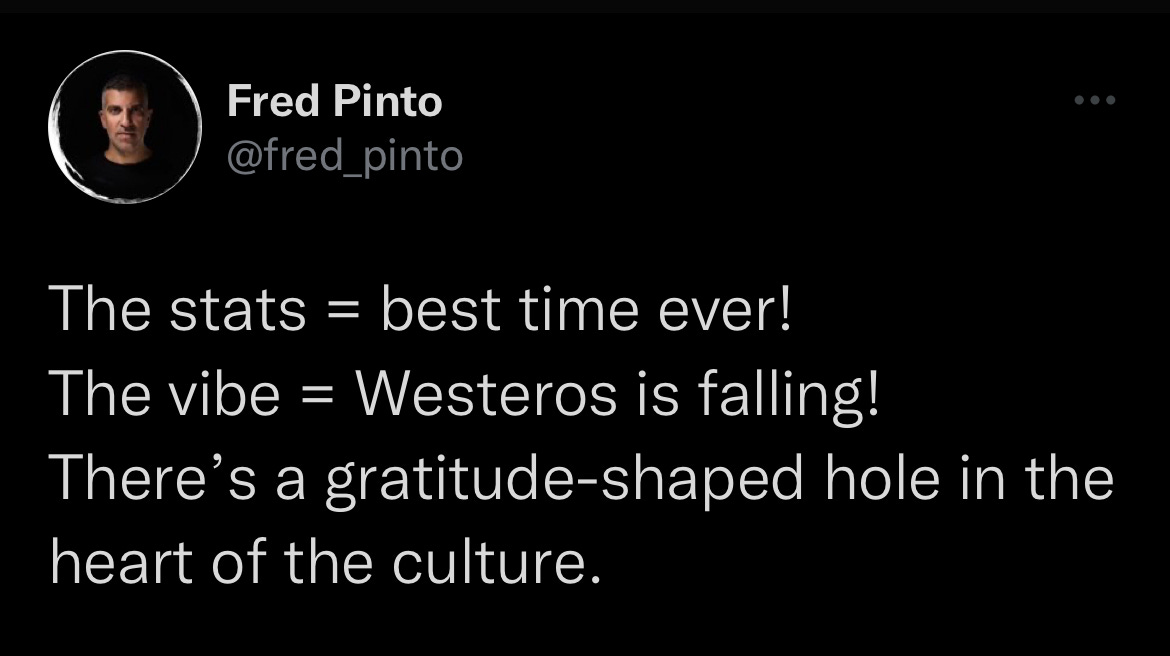Closing the Gratitude Gap
Here’s a headline you’ll never read: “This just in: we are living in the best time ever for humanity.”
But it would be a fair representation of the facts.
In Enlightenment Now!, Steven Pinker lays out a convincing, evidence-based case: over the last two hundred years or so, worldwide measures of well-being (life expectancy, economic output, peace, safety, democracy, equal rights, education, etc.) have climbed upward, while measures of suffering (disease, malnourishment, violent conflict, etc.) have diminished. Progress isn’t linear or uniform, and it can zigzag and take steps backward anytime. But a bit of perspective paints a clear picture: it’s been constant and remarkable.
Meanwhile, our headlines and social feeds drip with panic and anguish. The message on both sides of the culture war is the same: Western culture is sinking toward the abyss. Large majorities of Americans believe that the world is getting worse, and that the country is heading in the wrong direction. Stats be damned.
Why such a gap between progress and the appreciation of progress?
Is it really true that we are taking massive steps backward in every domain? Is it our inborn negativity bias, forged through millennia of survival in harsh environments? An embattled media’s voracious quest for clicks? The financial incentives of various “spook us to sell us” merchants? The loss of perspective resulting from our collective ADD brain?
Whatever the mix, it seems likely that there’s a connection between our addiction to fear porn and the sense of never enough that plagues us: never enough safety, never enough fun. Never enough money, or adoring fans and friends and followers. Never enough strife or righteousness against our enemies, and never enough rapturous, back-breaking laughs. For our record-shattering abundance, we sure have a lot of never enoughs.
Luckily, there’s a simple, millennia-old cognitive technology humans have developed as the perfect antidote for this bottomless well of negativity.
It’s quick, enjoyable, healthy, and backed by dozens of recent studies. It’s also completely free. Which might explain why you haven’t seen it promoted in your ads and feeds.
Gratitude counters the negativity bias. It reminds us to savour the many good things we already have. It synchronizes our brains and heart[1]. It almost instantly amps up our sense of subjective well-being[2].
The evidence-based practices abound: from writing letters to people we haven’t properly thanked[3], to meditating or journaling about things that are going well in our lives[4], to recalling the shorthand version of a story where someone genuinely helped someone else[5].
Regardless of the modality, the research converges on a simple insight: five minutes of gratitude a day can be life-changing.
Of course, it isn’t a panacea. It won’t magically fix our problems. But it does elevate our standing position so we can better confront them. It reminds us to cherish the things we have instead of agonizing over the endless list of things we don’t.
The need to balance gratitude and realism recalls the Stockdale paradox – the call to faith from the American soldier who was tortured for years during the Vietnam war: "You must never confuse faith that you will prevail in the end–-which you can never afford to lose–-with the discipline to confront the most brutal facts of your current reality, whatever they might be."
Until our next “told you so” catastrophic crisis – here’s to closing the gratitude gap.
[1] https://www.nature.com/articles/s41598-017-05520-9
[2] https://psycnet.apa.org/record/2015-51749-001
[3] https://www.themarginalian.org/2014/02/18/martin-seligman-gratitude-visit-three-blessings/
[4] Seligman, M. E. P. (2012). Flourish: A visionary new understanding of happiness and well-being. New York, NY: Atria Paperback.
[5] https://www.frontiersin.org/articles/10.3389/fpsyg.2015.01491/full





